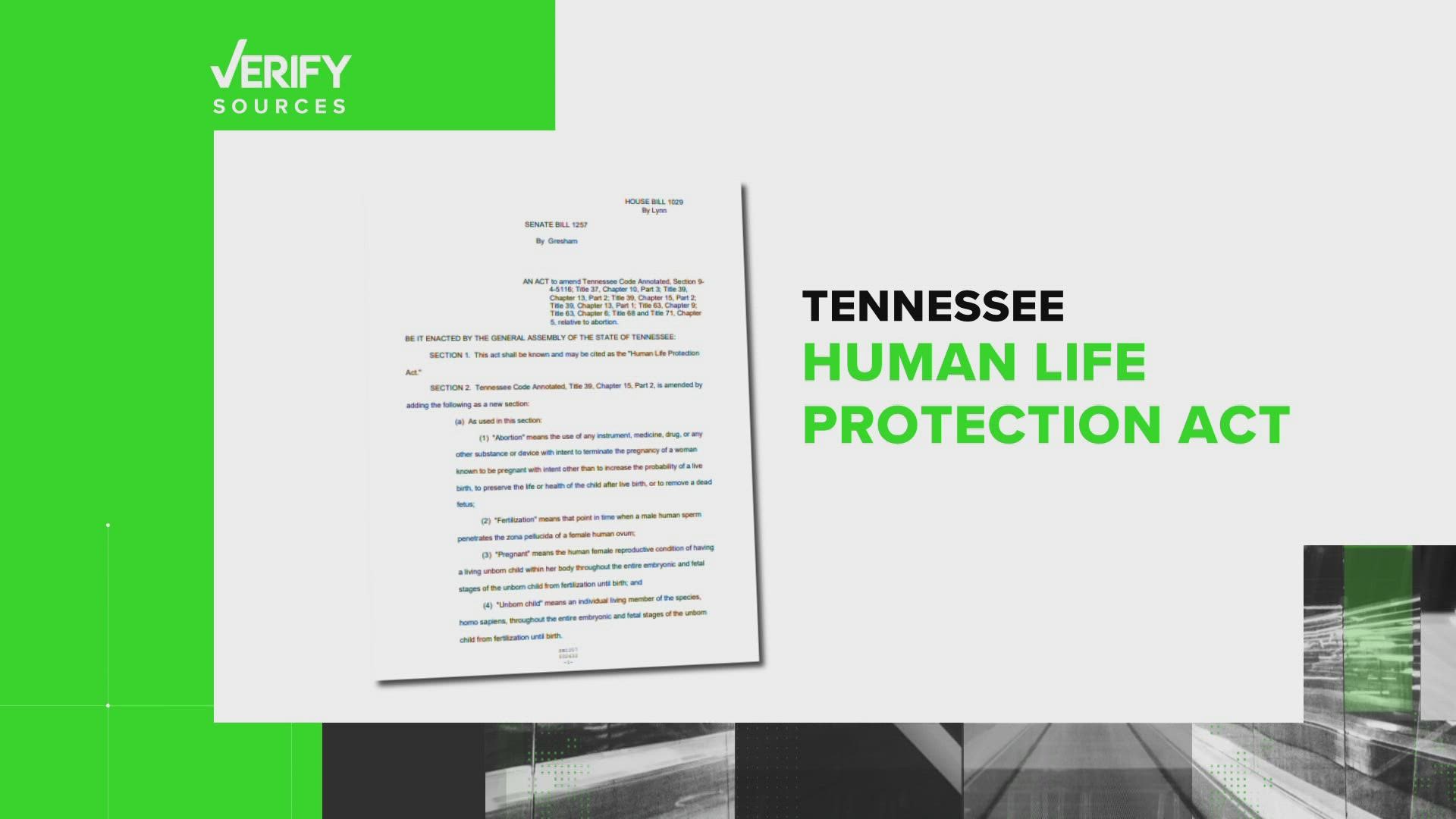KNOXVILLE, Tenn. — Tennessee passed the Tennessee Human Life Protection Act in 2019. The law makes it a Class C Felony in Tennessee for someone to provide abortion services. The law does not punish the women who try to get abortion treatments.
Because the law is a criminal statute, longtime Criminal Defense Lawyer Chloe Akers helped verify some common questions about the new law.
Does the new law make it illegal to remove a fetus after a miscarriage?
No, the law doesn't make it illegal for doctors to perform a surgical treatment or medical treatment to remove the fetal tissue from inside the uterus, because the fetus is already dead.
"The removal of that fetus is not even considered an abortion under the definition," Akers said.
Can people leave Tennessee to get an abortion?
Yes. The law does not penalize people who leave the state to get an abortion. However, if they are prescribed an abortion pill by a doctor outside of Tennessee, and that pill is filled by a pharmacist in Tennessee, that pharmacist could be prosecuted under the new law.
Are there exceptions to the state law?
No, there are no exceptions, Akers said. There are no exceptions in cases of rape, incest or trafficking like there are in other states.
However, Akers said, there are affirmative defenses. If a licensed physician determines "the abortion was necessary to prevent the death of the pregnant woman or to prevent serious risk of substantial and irreversible impairment of a major bodily function of the pregnant woman."
In that case, the physician would need to make a legal judgment in addition to their medical judgment when it comes to whether they should provide abortion services.
Does this law apply when people get genetic testing done?
Yes, the law still applies.
"In a situation where a woman who wants to be pregnant gets a devastating diagnosis that her baby will have a genetic mutation and die shortly after delivery," Akers said. "These are scenarios...that are not considered in the statute."
How will the government enforce the law?
Akers said that's still an open question. Local District Attorneys have to use their judgment after completing an investigation on whether they even choose to prosecute cases.
The defense attorney said the courts in Tennessee will have to rule on some of the ambiguities in the statute.
"Someone is convicted of the law, their attorneys appeal, and the Court of Criminal Appeals or the Tennessee Supreme Court weighs in on some of these more ambiguous aspects," Akers said.

